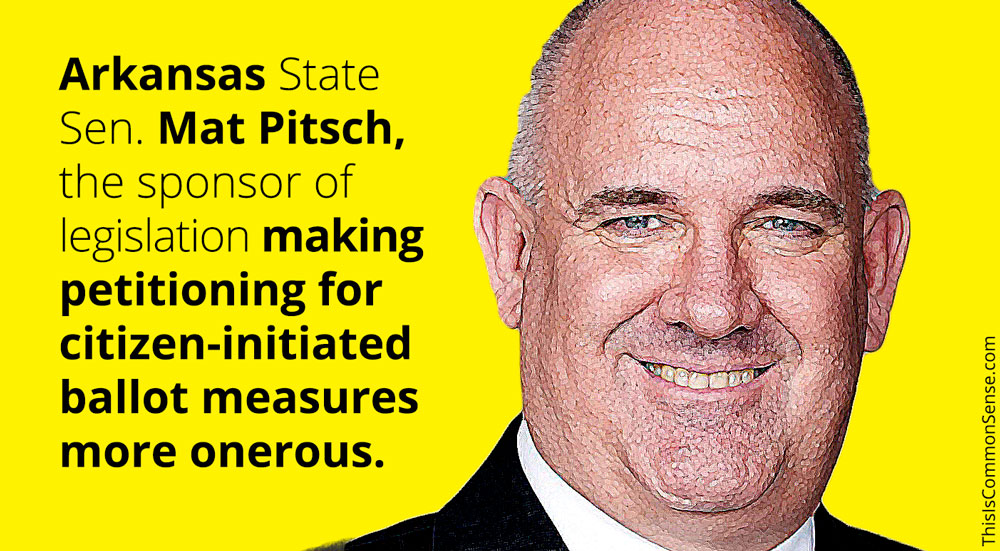“[C]urrently, in the state of Arkansas, out-of-state special interest groups that come to our state can try to change our laws and change our constitution,” Rep. Kendon Underwood, the Republican sponsor of House Bill 1419, testified “by just getting signatures from 15 counties.”
In the over 100-year history of citizen-initiated ballot measures in Arkansas, no initiative has ever qualified with signatures from only 15 counties. Zero. Moreover, to pass a statutory or constitutional initiative requires much more than merely gathering petition signatures; it mandates a majority vote of the people of Arkansas.
As for “out-of-state” special interests, the ballot issues referred by legislators last election received more such funding than the lone citizen-initiated measure.
There’s more to unpack.
“Changing” the state constitution is too easy? Well, HB-1419 hikes up the constitutional requirement that citizen petitions qualify in “at least 15 counties” to now 50 counties out of Arkansas’s 75 counties — a more than 300 percent increase.
You read that correctly. Mr. Underwood’s proposes to amend the constitution with a simple statute. Textbook unconstitutionality. Yet, that statute has now passed both houses of the legislature and Governor Sarah Huckabee Sanders says she will sign it.
In both 2020 and 2022, legislators placed constitutional amendments on the ballot to entice Arkansans to vote away their initiative and referendum power. Both times Natural State voters said no. One of the provisions defeated in 2020 would have increased the number of counties in which petitions must reach a threshold to 45.
After voters rebuffed legislators on those amendments, the politicians now decide to weasel their way around the constitutional restraint.
My, they’re real politicians now!
Legislators also declared “an emergency” so HB-1419 will immediately go into effect, because there’s an urgent need “to enhance and protect Arkansans’ voice in the ballot initiative and referendum process.”
Why not tell the Big Lie? They’ve told every other size.
This is Common Sense. I’m Paul Jacob.
Illustration created with PicFinder.ai
See all recent commentary
(simplified and organized)
See recent popular posts















